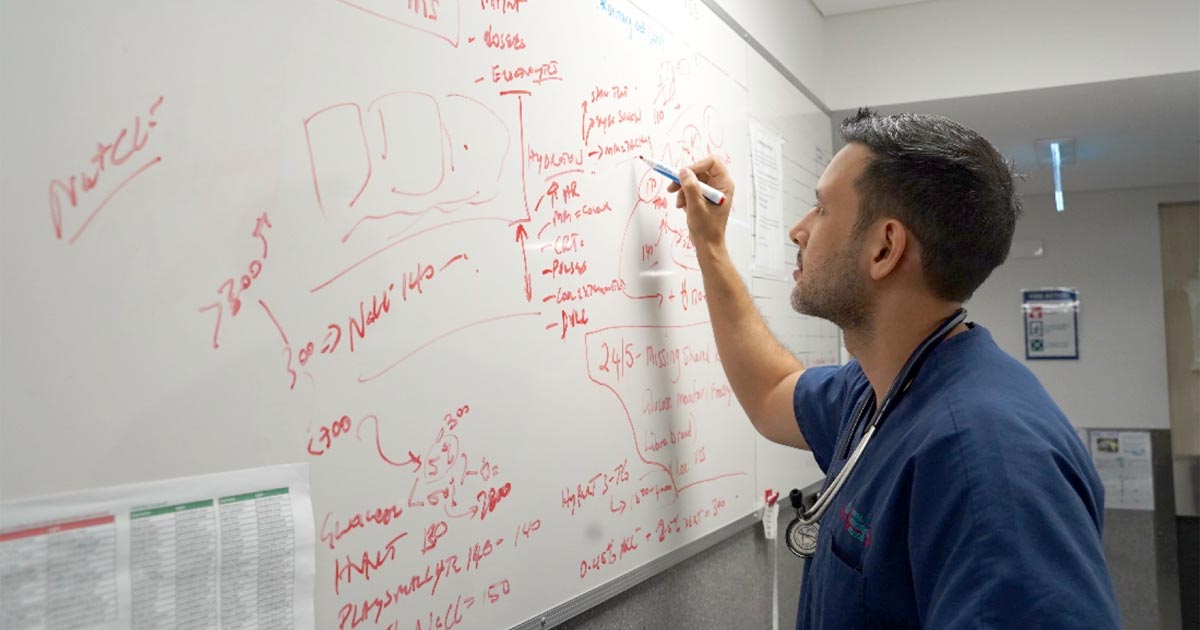It has been proven that you learn better and recall more information when you are expected to teach someone, compared to when you are expecting to be examined on it.
So, how can you take advantage of this, and what are the benefits?
- The benefit of sharing knowledge is twofold – you benefit, but so do others. There is no point holding on to what you know if your colleagues, community and patients can benefit from it.
- Teaching not only benefits others, but also makes sure you understand what you are talking about.
- The questions you get asked highlight the common aspects you should know and highlight areas you need to learn in more depth.
Practical application
I use this by thinking of something I want to know more about, or be better at – and I pre-organise having to teach it to others.
I recently used this with ECG interpretation at our hospital, which we are competent at, but not great.
We were limited as we were all teaching each other little bits and pieces here and there, but no one was really 100% clear about the topic. So I decided it had been on my bucket list for long enough and booked a tutorial one month in advance. I then scheduled in reading and time to prepare, then deliver, a presentation.
As I was learning it, I made sure I knew it well enough so I could pass on that knowledge and train others to do the same. I have now delivered the presentation twice.
I guarantee you, this is a very effective method of learning and has benefited not only myself, but the whole team.

Leave a Reply